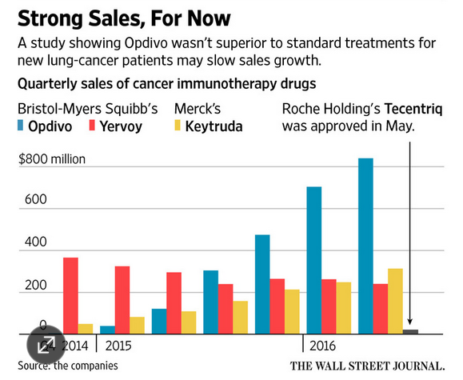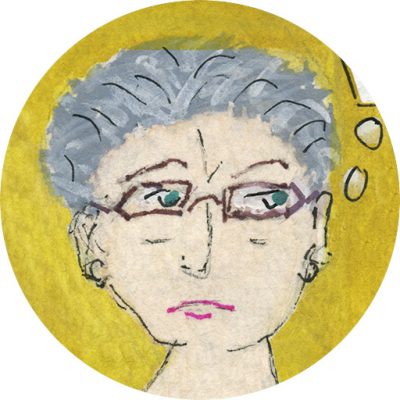“Immunotherapy Drug Fails Lung Cancer Trial.”
Naturally the headline caught my eye since I have been reading about lung cancer since my husband was diagnosed in 2009 and I, two years later. My husband is well and I am now in “partial remission.” Not a bad outcome. Immunotherapy was not around when we started chemotherapy, and I confess that I’ve been longing to try immunotherapy in the hopes of achieving what appears to be an elusive remission.
I wrote about the advertising for Opdivo (the drug in question) almost two years ago, in an earlier post. I felt irritated by the hyperbolic promise of the language, invoking the amazing powers of your immune system to fight cancer–with the help of the new drug. Patient, heal thyself. The future you’ve dreamed of is now. One ad, a full page in color, featured a couple astride a cool looking motorcycle, poised for a long, adventurous life, against the bright blue background of a perfect sky. I probably envied their recovery.
I don’t remember exactly where in the New York Times, my daily newspaper, the ad appeared, but I’m struck by the fact that this report of the drug’s failure occupies the first page of Business section, rather than the Science section, or indeed the News section itself, which recently featured a multi-paged narrative about the miracles performed by immunotherapy drugs.
The Wall Street Journal also reports the trial’s failure as a business calamity. There is no attention to the fate of the patients, the individuals for whom the drug failed. Follow the money. Both articles focus on the drama of financial shock, shaky market shares, and rivalry with other drug companies–future sales figures of the drugs, not the future of the patients.

In the Times the only mention of the 541 unfortunate humans in the clinical trial was to note that their tumors had not produced enough PD-L1 for the drug to work, as if they had failed the drug instead of the other way around. What did patients know about the trial as they entered it? In her “Living with Cancer” blog, Susan Gubar highlights the scandalous history of drug companies that do not report the outcome of failed trials, thus depriving patients of the opportunity to evaluate their chances.
I kept hoping my oncologist would propose Opdivo for me. Last year, a friend began treatment for lung cancer with my oncologist, on my recommendation. She received standard chemotherapy, as I had. Then immunotherapy. I thought she was lucky to benefit from Opdivo. Both therapies failed. This brilliant, courageous woman was then given 6 months to live; she died within 6 weeks. Where is her story?
My friend was not alone. The gap between the promotion of drugs and the life of patients is just starting to emerge. Here is just one sad outcome.
If I hadn’t already stopped asking for the drug, I would now. How many patients in future drug trials will know what happened to the 541 who came before them before they decide to enter a new trial?
Be careful what you wish for.
